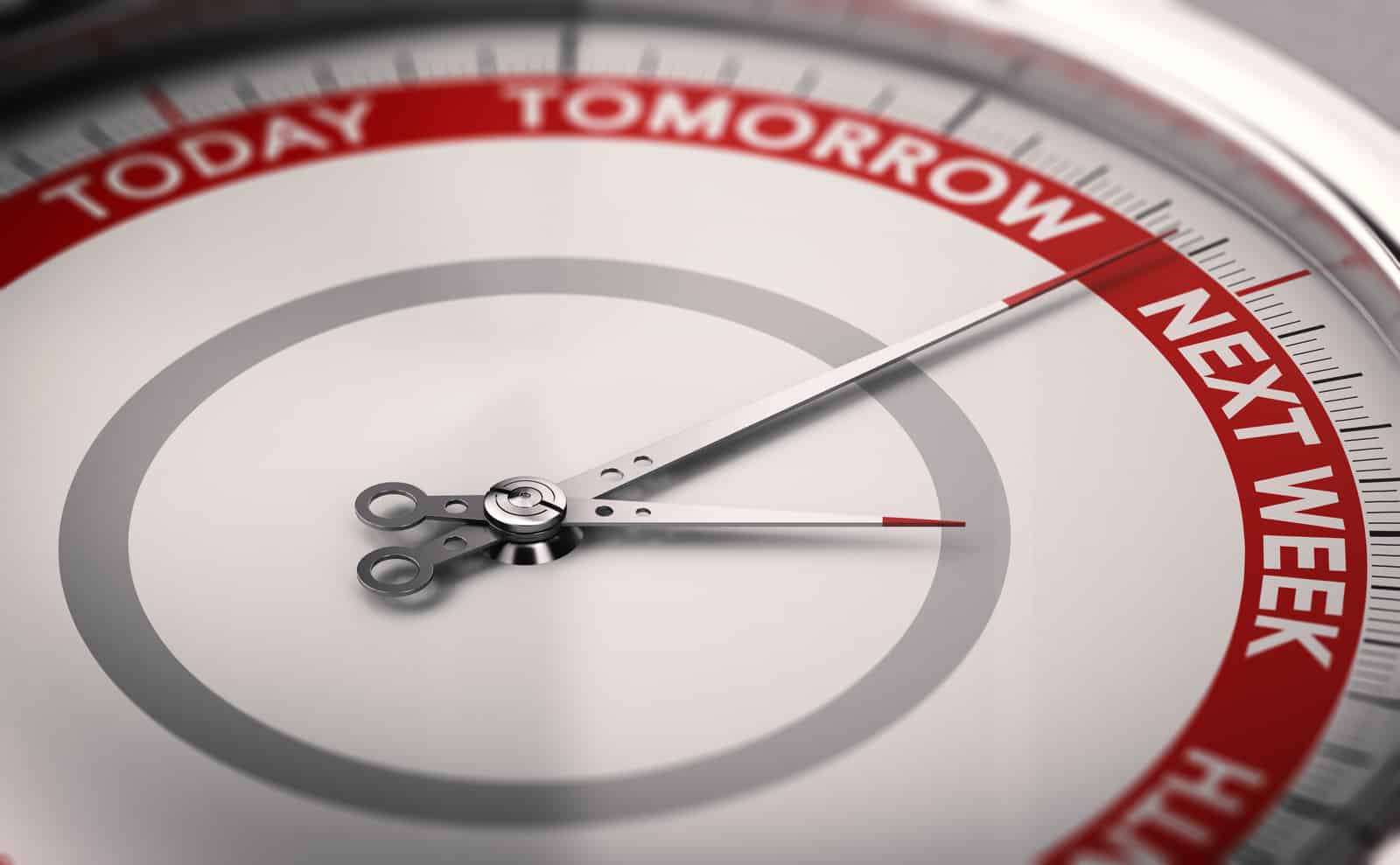The worst decision I made in seminary was to ask for an extension on a paper that was due the end of my last semester. The professor gave me a week. It was just before Christmas and the idea of writing the paper hung over my head the whole time. I had lots of excuses to put it off. I was pastoring a church and it was Advent. We had four young children and I needed to help get ready for Christmas. I procrastinated like a pro, putting it off until the night before the extension deadline. Then I wrote the paper.
If you’re a procrastinator like me, you can relate to this feeling. It’s easy to come up with reasons why other things are more important. There is a gnawing in the back of your mind that keeps reminding you of what needs to be done. And, once you actually get started, you find that it wasn’t actually that bad. Sometimes it even feels good.
That’s the way I feel about writing, exercising and dealing with my inbox. I’ve gotten pretty good about the first two, they have become habits, so I know I just need to get started and once I’m in to it, I’m really glad.
My inbox is another story. It’s a slot in a bank of inboxes that we share as a staff. It’s only about three inches high and it’s usually full or close to full. I cherry pick “important” stuff off the top, which ends up on another stack on my desk. Since my ceiling is 10’ high, there is no limit to how high that stack can get.
Over the holidays I went through the stack on my desk (there were actually two), my inbox and the two stacks on my credenza. It felt great. Once I got started it wasn’t that hard. Much of the stuff was OCE (overcome by current events) and went straight into the recycling bin. Most of the rest needed filing and there were a handful of things that I still needed to act on.
Are there things you put off? The New Year is a time that we think about them and decide we’re going to do things differently. Here are three tips to help you get started.
Commit to a micro-habit.
A micro-habit directly addresses the issue of starting. If you want to start reading your bible daily, then set a goal of sitting in your chair and holding the bible for five minutes. Do that for a week, then add five minutes of reading to the goal. Do that for another week and then add five more minutes of reading. Keep that up and in seven weeks you’ll be reading 30 minutes each day. You can apply this to exercising, eating, praying, writing, cleaning, organizing or any other project that you want to get started. It works.
Pick a time and place.
One of the best ways to develop a habit is to make it a part of a routine that is grounded in a time and place. Over time, the “time and place” will trigger your actions, so you do them without thinking. In our bible reading example, if you use the same chair every day, that will reinforce your habit. Eventually, just sitting down in your chair with your bible will make the reading part automatic. Better yet, if you’re doing it in the morning, then grab your coffee and head straight for the chair. The act of getting your first cup of coffee will be your cue that it’s time for bible reading.
I’m writing this blog in my cubby-hole of a desk in the corner of a spare room. Every morning, as soon as I put my journal down, I open up my PC and start writing. Or, if I’m not writing, I’m researching, outlining, proofreading or editing. Sometimes the work goes well. Other times it’s a grind. But I’m working on my craft, a little bit at a time.
Again, you can apply this idea to just about any habit, goal or project. Over time, your brain subconsciously associates your habit with the time and the place and getting started is almost automatic.
Write down your goal and tell someone else.
Research is clear that the chances of success increase significantly if you do this. It’s using both accountability and support to help you get moving. It’s scary. It’s a lot easier to keep it to yourself. That way if you procrastinate, then nobody knows.
Once you write it down it becomes real. Once you tell someone it is out in the world. Ideally, the people you tell will encourage you and ask you how it’s going. Just knowing that others know about it is often enough motivation to get started.
I’ve just decided that I will spend five minutes each day in the office with the stuff in my inbox. I’ll grab it, then stand over the recycling bin and immediately toss what’s not important. I’ll deal with what’s left in the remaining amount of time. Ask me how it’s going in a few weeks.
What about you?


